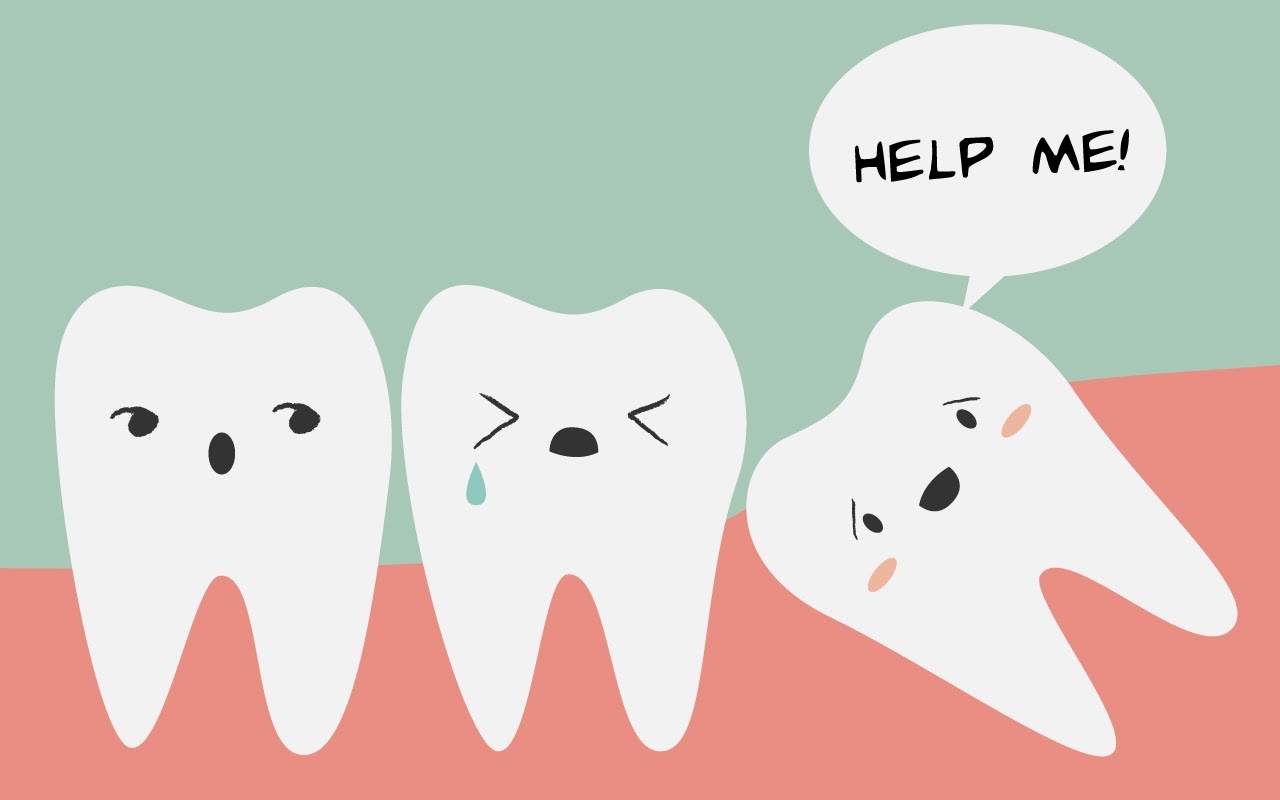Why Should You Remove Wisdom Teeth?
Wisdom teeth are one of the few vestigial organs of the human body, the presence or absence of which doesn’t make much difference. According to anthropologists, humans have evolved beyond needing wisdom teeth, so future generations may not even have them!
Humans have evolved, and so have our diets. We no longer eat raw vegetables or meat. The cooking of our food is well-done, and our two molars are enough to chew such food. Still, owing to genetics, at least 53% of individuals still have at least one wisdom tooth coming in.
Another interesting fact is that you may have a wisdom tooth, but you won’t be able to see it because it may have never erupted into the oral cavity due to lack of space. Such a wisdom tooth may also lead to problems in the near future and can only be confirmed through an X-ray.
But wait, the best dentists in Mumbai do not advise extraction of wisdom teeth unless necessary. To know in which cases you would not need a tooth extraction, read along.
When You Do Not Need Wisdom Teeth Extraction:
- Healthy wisdom tooth with no signs of caries or infection.
- A fully erupted wisdom tooth, completely grown with adequate space.
- Presence of an opposing tooth so they can aid in chewing.
- Easily reachable and cleansable.
- Correctly positioned in the oral cavity.
In such instances, you do not need to get your third molar extracted. But well, not everyone is lucky enough. Most of us fall short in at least one of the above-mentioned criteria.
Problems Caused by Mispositioned Wisdom Teeth:
Most of the time, wisdom teeth don’t have enough space to erupt and thus end up erupting partially and applying pressure on the adjacent tooth.
The list of problems caused due to mispositioned wisdom teeth is endless. Erupting wisdom teeth tend to grow at various angles in the jaw, even completely horizontal at times.
Such partially erupted teeth are difficult to reach with a toothbrush and thus are often left unclean. These teeth often become a site for food lodgment, leading to cavities that, if not treated on time, may become infectious.
At times, the wisdom tooth may remain completely hidden within the gums or embedded in the bone. This may result in an infection, abscess, or a cyst! It can also lead to damage to the adjacent tooth.
A wisdom tooth placed at a different angle also applies pressure on the neighboring teeth, resulting in crowding. Thus, if you had a perfectly fine set of teeth earlier but have recently started noticing crowding, it may be a result of an erupting third molar.
When Should You Get Wisdom Teeth Removed?
The best dentists in Mumbai believe it’s better to remove wisdom teeth at a fairly young age before the roots and bone are fully formed. Young adults also show faster recovery post-surgery, which is why some opt for early removal even before problems arise.
Quick Checklist to Decide if You Need to Remove Wisdom Teeth:
- Recurrent pain in the back area of the jaw.
- Frequent infections of soft tissue behind the lower last tooth.
- Wisdom teeth positioned at the wrong angle.
- Partial gum covering over the wisdom teeth.
- Food regularly getting stuck around the wisdom tooth.
- Difficulty cleaning the third molar, leading to plaque buildup.
- Development of cavities at the site of the wisdom tooth.
- Sudden crowding in your upper or lower teeth.
What Happens If You Delay Wisdom Teeth Extraction?
Delaying wisdom tooth extraction can lead to serious oral health issues such as:
- Gum diseases
- Crowding of teeth
- Extensive tooth decay
- Severe pain and discomfort
- Abscess or infection, which may further lead to cysts or even tumors
We aren’t trying to scare you but rather make you aware of the consequences of ignoring problematic wisdom teeth.
Common Questions About Wisdom Teeth Extraction:
Is it necessary to get my wisdom tooth removed?
The answer depends on whether it is already causing trouble or whether it is likely to do so in the future.
How will my wisdom tooth be extracted?
Wisdom tooth extraction is a minor surgical procedure. The complexity varies depending on impaction, angulation, and bone involvement. Your dentist will take a pre-operative radiograph and determine the treatment plan accordingly.
Is the extraction painful?
The extraction is done entirely under anesthesia, so you won’t feel any pain. However, you may experience some pressure during the procedure, which is completely bearable. With advancements in painless dentistry, pain should be your least concern.
How long will the recovery take?
Recovery time varies, but the best dentists in Mumbai suggest that recovery is usually fast. In some cases, you may need just a single day of rest post-treatment.
Will there be any side effects after extraction?
Since it’s a surgical procedure, there may be minor side effects like swelling, difficulty opening your mouth, and slight pain post-procedure. However, with painkillers, ice packs, and antibiotics, these effects can be easily managed.
The decision to remove wisdom teeth entirely depends on your oral health condition. It’s not always necessary to get them extracted, so consult your dentist to determine what’s best for you.
Book an Appointment with The Dental Bond If you are experiencing wisdom tooth pain or need an expert consultation, visit The Dental Bond for the best teeth extraction in Mumbai. Contact us today to schedule your appointment!
